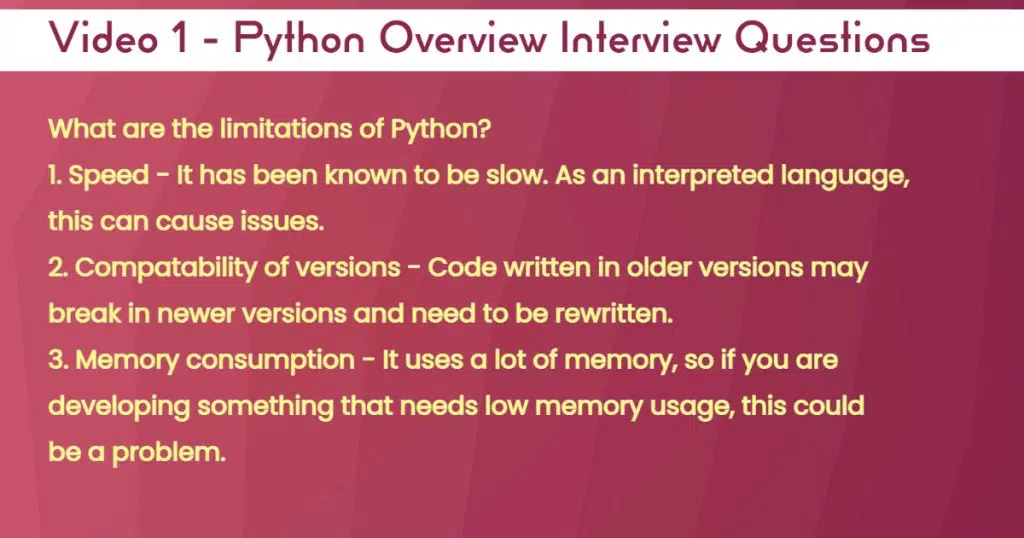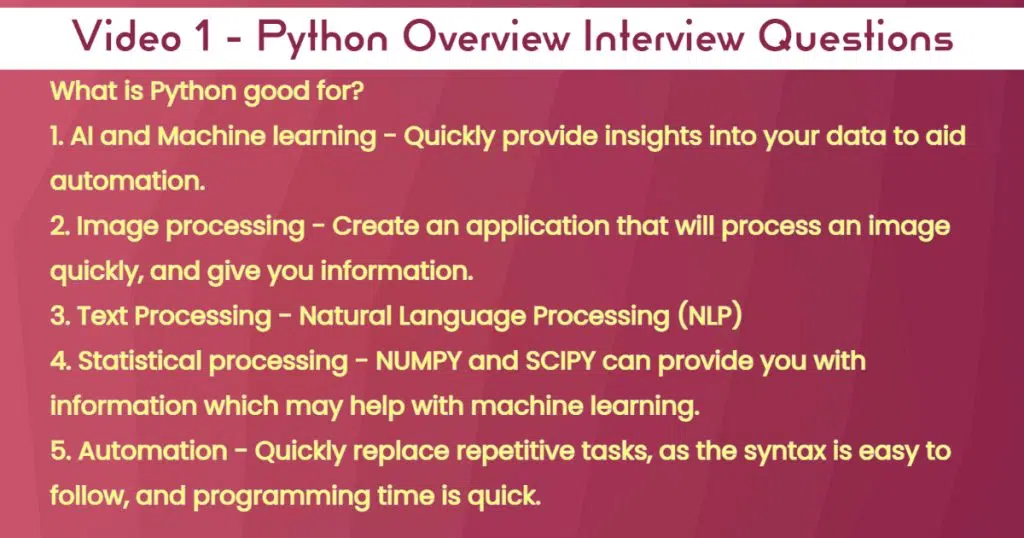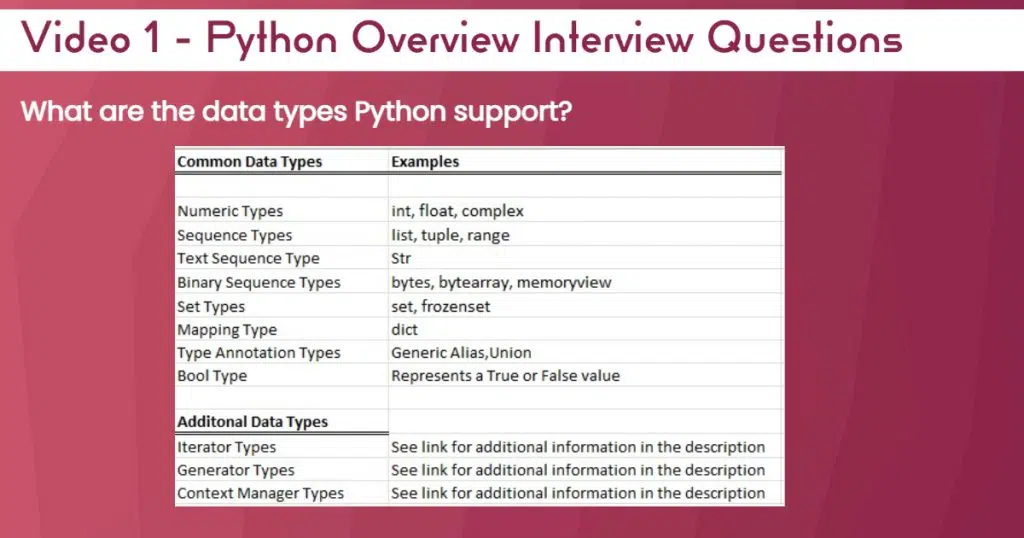Estimated reading time: 4 minutes
So you have landed an interview and worked hard at upskilling your Python knowledge. There are going to be some questions about Python and the different aspects of it that you will need to be able to talk about that are not all coding!
Here we discuss some of the key elements that you should be comfortable explaining.
What are the key Features of Python?
In the below screenshot that will feature in our video, if you are asked this question they will help you be able to discuss.
Below I have outlined some of the key benefits you should be comfortable discussing.
It is great as it is open source and well-supported, you will always find an answer to your question somewhere.
Also as it is easy to code and understand, the ability to quickly upskill and deliver some good programs is a massive benefit.
As there are a lot of different platforms out there, it has been adapted to easily work on any with little effort. This is a massive boost to have it used across a number of development environments without too much tweaking.
Finally, some languages need you to compile the application first, Python does not it just runs.

What are the limitations of Python?
While there is a lot of chat about Python, it also comes with some caveats which you should be able to talk to.
One of the first things to discuss is that its speed can inhibit how well an application performs. If you require real-time data and using Python you need to consider how well performance will be inhibited by it.
There are scenarios where an application is written in an older version of code, and you want to introduce new functionality, with a newer version. This could lead to problems of the code not working that currently exists, that needs to be rewritten. As a result, additional programming time may need to be factored in to fix the compatibility issues found.
Finally, As Python uses a lot of memory you need to have it on a computer and or server that can handle the memory requests. This is especially important where the application is been used in real-time and needs to deliver output pretty quickly to the user interface.

What is Python good for?
As detailed below, there are many uses of Python, this is not an exhaustive list I may add.
A common theme for some of the points below is that Python can process data and provide information that you are not aware of which can aid decision-making.
Alternatively, it can also be used as a tool for automating and or predicting the behaviour of the subjects it pertains to, sometimes these may not be obvious, but helps speed up the delivery of certain repetitive tasks.

What are the data types Python support?
Finally below is a list of the data types you should be familiar with, and be able to discuss. Some of these are frequently used.
These come from the Python data types web page itself, so a good reference point if you need to further understand or improve your knowledge.



